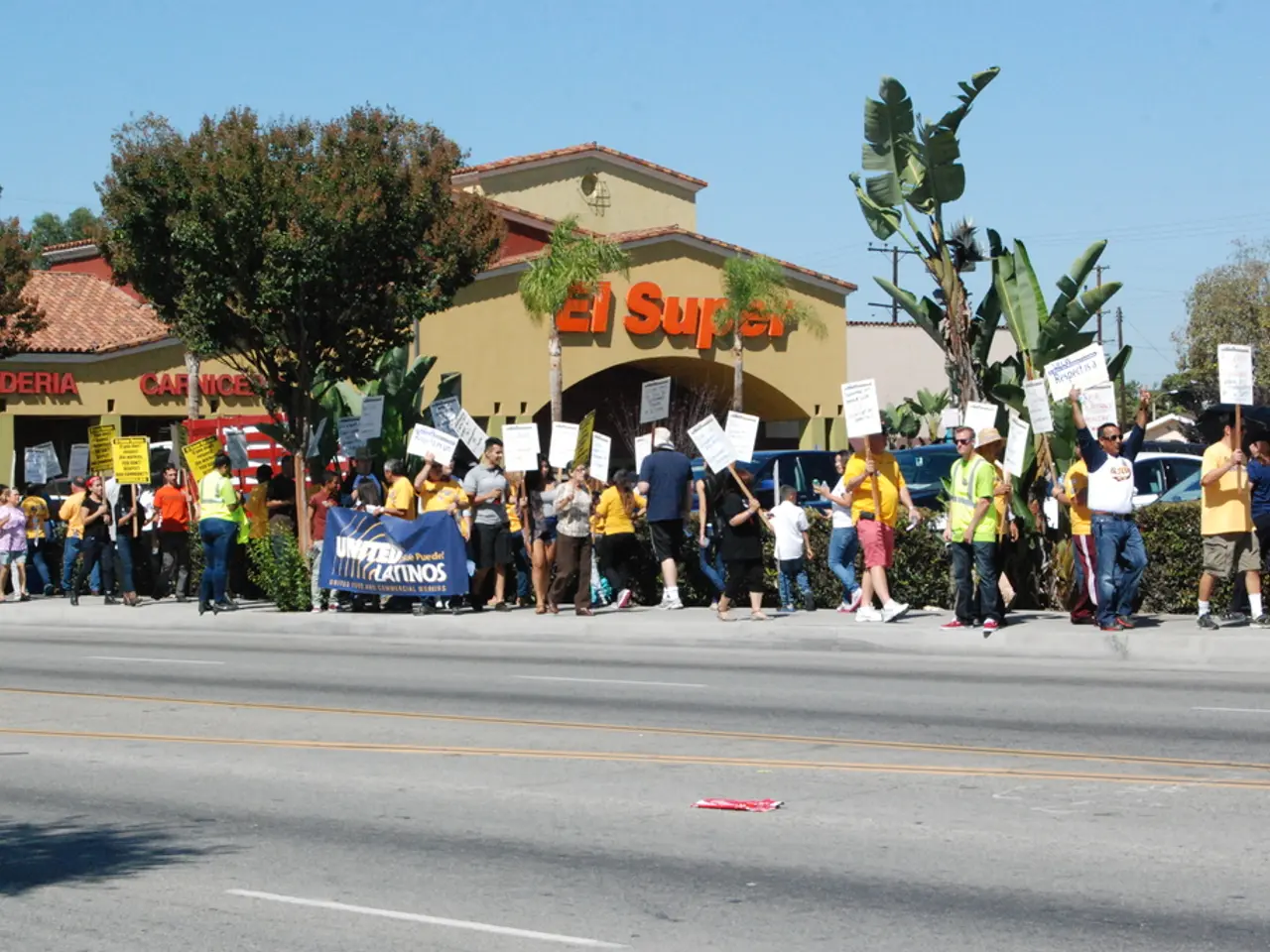Media Persists in Advocating Bias in Redistricting Discourses
Gerrymandering: A Bipartisan Issue in U.S. Redistricting
In the ongoing debate over redistricting in the U.S., a controversial practice known as gerrymandering has once again come to the forefront. This time, the spotlight is on the state of Texas, where the Republicans are accused of manipulating electoral boundaries to favor their party. However, a closer look at the history of gerrymandering reveals that this practice is not unique to the Republicans or Texas, but a tool used by both parties for political gain.
Recent analyses, such as the Princeton Gerrymandering Project, show that Democrat-controlled states like Illinois, Maryland, and Oregon have also created district maps with significant partisan advantages, similar to Republican-controlled states including Texas, Georgia, and Florida.
The term "gerrymander" originated in 1812 under a Democratic-Republican map redrawing effort by Massachusetts Governor Elbridge Gerry. Over time, many states led by Democrats have been accused of manipulating district boundaries to entrench political power.
Illinois, a solidly Democratic state in recent decades, is often cited as having some of the most egregiously gerrymandered districts favoring Democrats. This has contributed to a sharp decline in competitive seats nationally, from 125 competitive U.S. House districts in 2002 to fewer than 35 in 2024.
Redistricting in the U.S. is largely controlled by state legislatures, making it a highly political process. Both parties use this to their advantage, drawing maps to secure incumbents or their party’s electoral success. This often leads to partisan, incumbent-protecting, and sometimes racial gerrymanders.
Amidst this political landscape, Bill D'Agostino of the Media Research Center has highlighted the media's perceived bias against the GOP. D'Agostino believes that the media's narrative against conservative aims is anathema to their beliefs. He suggests that many journalists entered their profession with a political agenda rather than a love for journalism, which contributes to the media's perceived bias against logical Republican actions.
In Texas, the Democrats are complaining about the redistricting process, with the media pushing a narrative that the Texas redistricting is racist, fascist, and an attempt at bullying Democrats. However, the state of Texas can do as it pleases regarding redistricting, and this process is not against any kind of parameter or law.
Interestingly, the Democrats are willing to do something they are vehemently against (redistricting) to retain power. This hypocrisy is not lost on D'Agostino, who states that the media's clear agenda against logical Republican actions is not easy to fix, as it requires a significant overhaul, including the departure of those pushing the perceived bias.
Meanwhile, other Democrat states, such as California, have vowed to fight back with their own redistricting. As the debate continues, it is clear that gerrymandering is a bipartisan issue, and reform of the media may be necessary for a fair and balanced representation of political events.
References: [1] Princeton Gerrymandering Project [2] Cook Political Report [3] Brennan Center for Justice [4] FairVote [5] National Conference of State Legislatures
- In light of bipartisan practices in redistricting, it seems challenging to achieve a fair and balanced representation of political events without policy-and-legislation reform that addresses gerrymandering.
- The US redistricting process has been influenced by the politics of both parties, leading to a general news topic where both the practices of strategic districting (gerrymandering) and the media's bias towards either side become crucial concerns.








